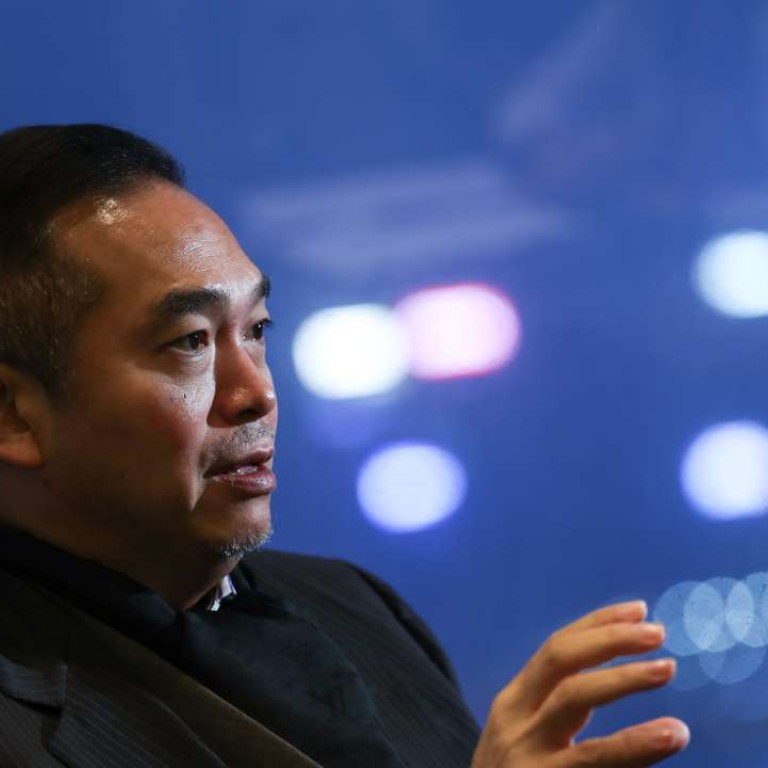
Hong Kong asset manager turns his attention to buying short-stay apartments in Japan
Chairman Timothy Shen says Look’s Asset Management plans to own at least 50 buildings in the country by 2020
While many Chinese investors have looked to acquire Japanese office buildings and apartments as the yen has weakened, including conglomerate Anbang Insurance Group, which is in talks to buy 200 residential properties from Blackstone Group for US$2.3 billion, Hong Kong-based Look’s Asset Management is taking a different approach.
Having sensed there are major opportunities in Japan due to a lack of hotel rooms amid a tourism boom in the country, the fund house aims to buy dozens of Japanese residential buildings and refurbish them into short-stay apartments.
Chairman Timothy Shen Ka-yip, a veteran investor with more than 20 years of experience in accounting, equity research and corporate finance and who has held senior roles in a number of Hong Kong- and London-listed companies, bought Look’s in 2016 from founder Andrew Look, a well-known equity analyst.
Shen said Japan’s abundance of travel destinations, further visa loosening and the 2020 Tokyo Olympic would help secure a flourishing tourism industry in coming years and the firm planned to own at least 50 buildings by 2020.

Why have you chosen to invest in Japan’s short-stay sector?
No one can disagree that Japan tourism is a promising market. In 2015, the country attracted a record 20 million foreign tourists, which was a milestone as the number was four years ahead of the government’s original forecasts.
Even though the government aims to double that figure to 40 million by 2020, we think it is still below market estimates and at least 50,000 more rooms are needed to fill that gap. So there are great opportunities.
Of the 20 million tourists in 2015, half were from China and four million from South Korea, with many of them travelling to Japan at least once a year. These frequent travellers are particularly cost-conscious and enjoy shopping and dining.
In general, Japanese hotels tend to be tiny but expensive, so we are offering frequent travellers a better proposition – more convenient locations at lower prices. We expect to offer a 40 per cent discount on a typical four-star hotel nearby.
What is your budget and what kind of buildings will you buy?
We are raising US$100 million in the first round of our Japan real estate fund, which is now at the final stages of subscription. The money would be used to buy three to four buildings in Tokyo and Osaka. The buildings should not be too new or too old, preferably built after the 1980s when Japan raised earthquake-resistance standards.
It is not difficult to find empty buildings in Japan. On average, a 10-storey secondhand building would cost about US$10 million, which is a good buy as one could only buy an apartment for that amount of money in Hong Kong. We are also looking at some three-star hotels as they are inexpensive.
After the purchases, we will boost the value of the buildings by adopting our own style of operation such as subdividing them into more apartments so that when we choose to sell them, the prices will be much improved.

Our selling point is that we have registered in Japan, so we can enjoy the same taxation terms as local firms. Without a local company structure, the investment costs would be very high.
We are pretty familiar with the Japanese market and have already secured a local property management firm as our general partner.
Meanwhile, I have another company in Japan that specialises in branding, which can help boost customer loyalty.
We will also tap local banks for loans to leverage the investment for better returns. The borrowing cost in Japan is very low, at below 1 per cent.
Most of our investors are from China, be they individuals, family-owned businesses or institutions. There are also investors from Singapore and the Middle East.
How will the property fund exit from the buildings in the future?
We are likely to have 50 to 100 buildings by 2020. We can either sell them all in one go or in batches by that time. We are very flexible.
We may also turn them into a real estate investment trust. This kind of trusts are very popular in Japan as they offer stable dividends and generate net cash flows. So if our assets are considered as high-quality with good returns, we can turn them into a reit and get it listed in Japan.
Why did you shift Look’s focus to real estate investment after the acquisition?
As an asset manager, I wanted to start with alternative investments, and real estate is the easiest thing for every investor to understand. Recently, we have also launched a real estate fund in Hong Kong.
I gained property investment experience over many years when I was in Canada amid the property boom there. I participated in most procedures from land purchases to finding contracters, so I know what investors want.
Investment in Japan is not just about buying a property. We want to make the best use of its potential, and that’s by narrowing the apparent mismatch between the amount of accommodation available and the fast-growing tourist numbers.
It usually takes three to four years to launch a standard hotel from planning, but it will take us far less time to develop our short-stay properties, and so the 2020 Tokyo Olympics is a perfect timing.
This article has been amended to fix typographical errors

